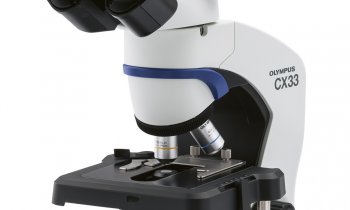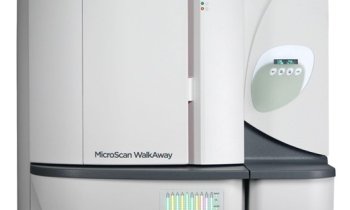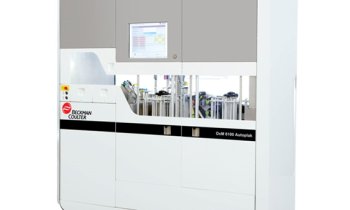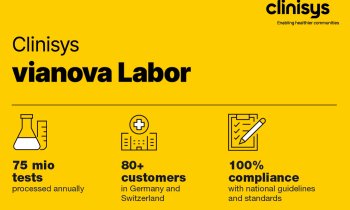The AACC Annual Meeting & Clinical Lab Expo
July 19-23 Chicago, Illinois
The American Association for Clinical Chemistry (AACC) hosts its 2009 meeting in conjunction with the Canadian Society of Clinical Chemists. Along with this, a high European participation is on the cards. "We are pleased that so many peers from Europe join us each year, and that our European colleagues lead many of the important scientific sessions," said Barbara Goldsmith PhD, current AACC President. "Attendees participate in exciting educational sessions conducted by dynamic presenters; learn about the latest products and services available for clinical scientists, and interact with and learn from colleagues in an informal environment."

Indeed, this meeting features over 200 educational events. Among the highlights, Jerome Groopman MD, of Beth Israel Deaconess Medical Center, Boston, will focus on ‘How Doctors Think’ (also the title of his latest book) when they treat patients; how they arrive at the correct diagnosis and treatment — and why they may not.
Dr Groopman holds the Dina and Raphael Recanati Chair of Medicine at Harvard Medical School and is Chief of Experimental Medicine at the Beth Israel Deaconess Medical Center. He is also the first recipient of AACC’s Wallace H. Coulter Lectureship Award, endowed by the Wallace H. Coulter Foundation, which recognises an outstanding individual who has had a significant impact on education, practice and/or research in laboratory medicine or patient care. Currently, Dr Groopman’s laboratory research involves understanding how blood and vascular cells grow, communicate and migrate. He is also studying how viruses cause immune deficiency and cancer, mechanisms of liver injury due to hepatitis C virus, and the effects of novel cell cycle inhibitors against mantle cell lymphoma.
The ‘Guidelines for Laboratory Analysis in Diabetes’ symposium will address the revised Laboratory Medicine Practice Guidelines (pub: 2002), focusing on revised criteria for diagnosing diabetes, modified criteria for diagnosing gestational diabetes and to address recent advances in glucose measurement in the intensive care units and at point-of-care.
Hot Topics in Point-of-Care (POC) Testing: The latest developments in POC testing in chemistry, microbiology, and coagulation will be presented in an interactive workshop. Intensive glucose control, lactate testing, information management, infectious disease testing, anti-platelet therapy, and haemostasis assessment/therapy, will be covered and case studies, examples and exercises will illustrate practical approaches to these issues. The workshop features updates in POC Infectious Disease Testing by Sheldon Campbell MD PhD FCAP, of Yale University School of Medicine, and POC Coagulation Testing by Paula Santrach MD FCAP FCAB, of the Mayo Clinic.
Personalised Genomics – Hype or Reality? Debate: Internet-based direct-to-consumer DNA tests are now widely marketed to the average consumer as tools for ‘empowering personal choices about your health and well-being’. Online services, such as deCODEme and 23 and Me, offer personal genotyping for less than $1,000. In the ‘Will knowledge of disease risk promote prevention?’ symposium, speakers will explore the potential benefits and consequences of informing consumers about their personal inherited risk factors. During this joint division session, representatives of the genomic service market and academia will present divergent views on personalised genomic service. An exciting debate is anticipated.
Diary date: AACC 2010
25-29 July. Anaheim, California
21.07.2009











